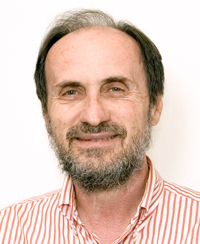
Florida State University’s internationally renowned nuclear physics program will expand its experimental capabilities with a new $4.4-million grant from the National Science Foundation.
FSU’s Department of Physics (www.physics.fsu.edu) has just received a three-year grant from the NSF to fund a research project titled “Studies of Nuclear Reactions and Structure.” The project will support fundamental research in experimental nuclear physics and the training of doctoral students for service to the nation in scientific research, education and national security, as well as the enhancement of economic competitiveness.
“This grant expresses a great vote of confidence in our laboratory by the NSF,” said Samuel L. Tabor, the Norman P. Heydenburg Professor of Physics at FSU and director of the university’s John D. Fox Superconducting Accelerator Laboratory. “We are excited about the opportunities it will provide for developing forefront research and for training students.”
Within Tabor’s laboratory, the NSF grant will increase the capabilities of the new RESOLUT rare ion facility, which enables researchers to fire a beam of atomic particles through a steel tube at speeds approaching 60 million miles per hour—roughly one-tenth the speed of light—and then to observe the nuclear reactions that occur. Knowledge of such reactions is critical to the field of astrophysics and the interpretation of observations made by new astronomical observatories around the world.

“Using RESOLUT, we are able to study how the most fundamental property of nuclear structure, the shells, changes with increasing imbalance in the proportion of neutrons to protons,” Tabor said. “The accelerator laboratory also is an ideal hands-on training ground for Ph.D. students. We look forward to being able to provide even more students with these unique research opportunities.”
Visit www.fsu.com/pages/2007/08/14/StarLightStarBright.html to read more about research being conducted at the RESOLUT facility.
Nineteen students currently are pursuing doctoral research in experimental nuclear physics at FSU. They come from as close as Florida and as far away as India, drawn to FSU by research opportunities unavailable at all but a handful of U.S. universities. More information about the laboratory is available at www.physics.fsu.edu/nuclear.
The past two years have been a period of substantial growth for FSU’s nuclear physics program. In addition to the development of RESOLUT, a nuclear theorist, Professor Winston Roberts, has joined the physics faculty. And in 2007, the physics department was chosen as the host site for the National Nuclear Physics Summer School—a significant honor typically accorded to the top nuclear physics programs at U.S. universities. (Visit www.fsu.edu/news/2006/12/12/summer.school to learn more.)
“As a member of the experimental nuclear group myself, I am obviously very pleased with this wonderful news—but as the chair of the department, I am doubly pleased,” said Mark Riley, the Raymond K. Sheline Professor of Physics at FSU. “This renewal award is a most significant vote of confidence by our peers and the NSF of the continued vitality and impact of the research carried out by the outstanding nuclear faculty and students at FSU.”




